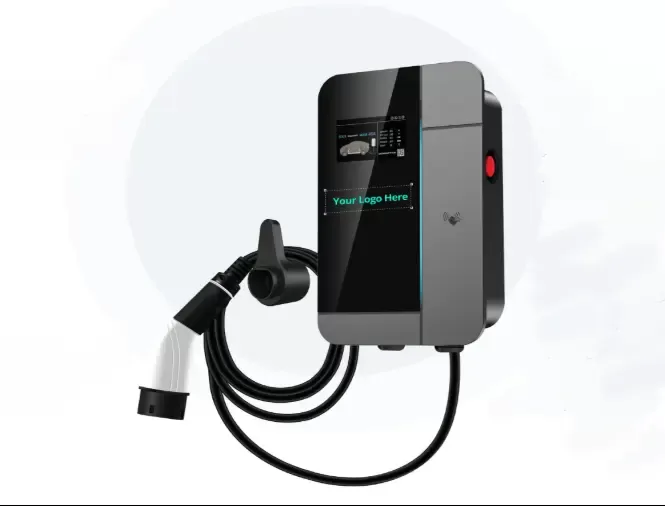Notifications

7 minutes, 55 seconds
-21 Views 0 Comments 0 Likes 0 Reviews

As the world shifts rapidly toward electric vehicles (EVs), the demand for robust, accessible charging infrastructure continues to grow. Driven by environmental concerns, supportive government policies, and technological innovation, EV adoption is no longer a future trend—it's happening now. However, building a proprietary charging network from scratch can be costly, complex, and time-consuming.As a professional EV charger manufacturer in China, Topper Company provides dependable electric vehicle charging station equipment and comprehensive charging solutions.
Enter white-label EV charging—a powerful solution that enables businesses to deploy fully branded EV charging networks without developing the technology themselves. By leveraging existing infrastructure and software from third-party providers, companies can offer seamless charging experiences under their own brand, quickly and cost-effectively.
This guide explores how white-label EV charging works, the key benefits, and why it's becoming a go-to strategy for businesses across various sectors.
White-label EV charging refers to a model where businesses use existing EV charging technology—both hardware and software—from a third-party vendor, rebranding it as their own. Much like private-label products in retail, companies can market these EV services under their own name, logo, and identity, while the provider handles the back-end operations.
Instead of investing heavily in R&D, deployment, and system management, businesses can focus on branding, customer engagement, and business growth. This model is ideal for those looking to enter the EV market quickly and efficiently.
Launching a traditional EV charging network can take years. With white-label solutions, businesses can roll out fully branded networks in months. This speed is critical in capturing market share and staying ahead of the competition.
Running a charging network requires a skilled technical team and constant maintenance. White-label providers handle these complexities—everything from software updates to station maintenance—allowing businesses to operate lean while still offering top-tier services.
From the physical design of the stations to the mobile app interface, every element can be tailored to reflect your brand. A consistent and immersive user experience enhances brand visibility and builds trust.
Offering EV charging under your own brand positions your company as eco-conscious and future-ready. This resonates strongly with today’s environmentally aware consumers and fosters long-term customer loyalty.
Businesses collaborate with a white-label provider to brand the hardware and software. This includes logos, color schemes, user interface themes, and messaging—creating a unified look and feel that matches the company’s identity.
Top-tier white-label partners provide scalable and high-performance charging hardware. These chargers range from Level 2 to ultra-fast DC chargers and include features such as RFID authentication, dynamic load balancing, and real-time diagnostics.
The software platform—typically including a mobile app, web portal, and backend system—is customized for user interaction and business management. Users can find stations, start sessions, and pay easily, while companies access real-time data, usage reports, and customer analytics.
The provider manages the deployment, including site evaluation, permitting, installation, and testing. This ensures a hassle-free and efficient setup tailored to the business environment.
With 24/7 customer support, remote diagnostics, and automatic software updates, the white-label provider ensures the network remains reliable. Businesses benefit from hands-off management while maintaining customer satisfaction.
The growing EV market, combined with rising sustainability demands, makes white-label charging a timely and strategic investment. Whether it’s a retailer looking to boost foot traffic or a developer enhancing property value, white-label charging adds a competitive edge without the complexity.
Additionally, government incentives and grants available in many regions lower the financial barriers to entry, making it even more attractive for businesses to invest in EV infrastructure.
Large retail brands have adopted white-label charging to increase dwell time and customer satisfaction. One supermarket chain installed chargers across 100+ locations, resulting in higher footfall and customer retention.
Luxury hotel groups have differentiated their services by offering EV charging under their own name, attracting eco-conscious guests and increasing bookings by up to 20%.
Logistics companies use white-label chargers at depots to lower fuel costs and reduce emissions. One fleet reported major operational savings after integrating branded EV chargers with their scheduling system.
As EV adoption accelerates globally, white-label charging is poised for exponential growth. Advancements like ultra-fast charging, solar integration, and AI-driven energy management will further enhance these networks.
In regions such as the UK and EU, where governments have set aggressive EV targets, white-label charging will be instrumental in meeting infrastructure goals. Businesses that invest today are positioning themselves for long-term success in a clean-energy economy.
White-label EV charging empowers businesses to enter the EV space with minimal risk and maximum brand impact. It’s a scalable, cost-efficient solution that delivers value to both customers and the bottom line.
As the global transition to electric mobility accelerates, there's never been a better time to launch your own EV charging network. With a white-label solution, you’re not just keeping pace with change—you’re leading it.
Ready to get started? Partner with a trusted white-label EV charging provider and drive your brand into the future of sustainable transportation.Know more about Google SEO Directory
China EV Chargers EV Charger Manufacturer EV Charging Solutions

